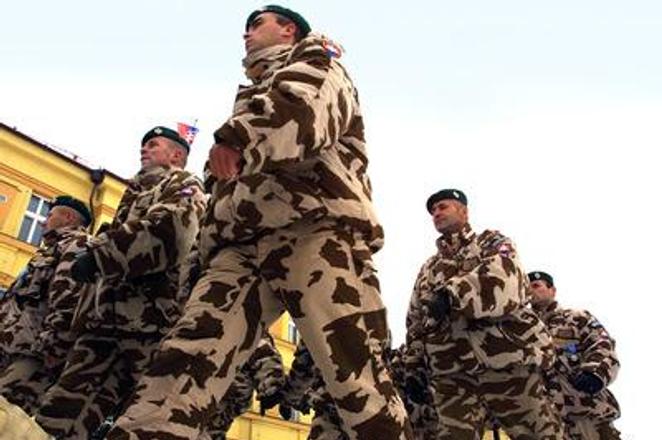Although compulsory military service in peacetime was abolished in Slovakia a decade ago, young men are still officially obliged to fight in cases of war. It is possible to avoid this by submitting an announcement concerning conscientious objection, but this must be done in advance and not when a conflict has already broken out. In addition, such announcements are only accepted in the month of January.
A number of internet sites pointed this out several weeks ago after Prime Minister Robert Fico stated that the probability of a wider war breaking out in Ukraine was 70 percent on December 2. Subsequently total of around 12,000 Slovaks announced that they wished to be viewed as conscientious objectors. This means that they would be assigned alternative service instead, such as working in a hospital, the Pravda daily reported.
“We’ve received hundreds of announcements in the past few weeks,” said the head of the state defence department at the district office in Banská Bystrica Ján Sloboda, as quoted by Pravda. “The events in Ukraine have led to a panic in which it's expected that our men will have to fight.”
The Defence Ministry has stated that it is too early to comment on this, adding that it will wait until all the figures are confirmed in the end of March. At the same time it admitted that only 53 such cases had been registered previously since the option of claiming conscientious objection in this manner was introduced in 2006.
Still strong numbers
Currently, a military reserve force has 570,000 former soldier or people who joined compulsory military service. Moreover, there are more than 400,000 registered citizens who would be obliged to fight in the case of war, the Defence Ministry spokeswoman Martina Balleková told The Slovak Spectator.
The number of people declaring that they do not want to fight is not so significant, according to Peter Vojtek, the former chief-of-general-staff if Slovak Armed Forces.
“Around 25,000 men are born in one year,” Vojtek told Pravda. “Of course, this number could be even higher.”
Nevertheless, Slovak army would not be prepared to protect the country in open conflict and this makes things even worse. The state tried to be helpful to people who have problem with fighting but it could be problem during the war, according to defence analyst Juraj Zábojník.
“This question is even more urgent in times when relationships between Ukraine and Russia are worsening,” Zábojník said, as quoted by Pravda. “In case that something happened state would have to adopt legislation which would summoned everybody that has arms and legs.”
Lack of motivation
It is surprising that so much disloyalty is apparent in Slovak society, Central European Policy Institute (CEPI) Senior Fellow for Defence and Security Jaroslav Naď commented the case.
“Everyone of us should give our lives for our country,” Naď told The Slovak Spectator.
Soldiers Union President Tomáš Švec pointed out that important factor in such decision is motivation. If a direct threat did appear, these men would reconsider their decision, he believes.
“They would want to defend their families, those closest to them and the country,” Švec told Pravda. “But if they had to fight for something in which they didn't believe, it would be difficult to motivate them.”
Power of social media
Vojtek sees the reluctance to fight as sort of protest against happenings in Ukraine. He also stated that people would be more willing to fight in case of real threat.
Naď pointed to pro-Russian propaganda and spreading of numerous hoaxes via internet including comments by false experts, groups supporting Russia in social media and billboards criticising NATO and the United States.
“It is important that state authorities together with non-governmental sector will communicate the right messages,” Naď said, adding that media should be more cautious when approaching to people who question the basic security principles of the country.
There is no connection between media manipulation or propaganda and those who said they would not fight in a war, according to Norbert Vrabec the head of Media Literacy Centre and head of Media Education Department both at The University of Ss. Cyril and Methodius (UCM).
“ There are of course plenty of stupidities and false or misleading information and campaigns in social networks,” Vrabec told The Slovak Spectator. “ This however does not apply to the possibility to refuse the extraordinary military service, which every citizen has the right to do.”


